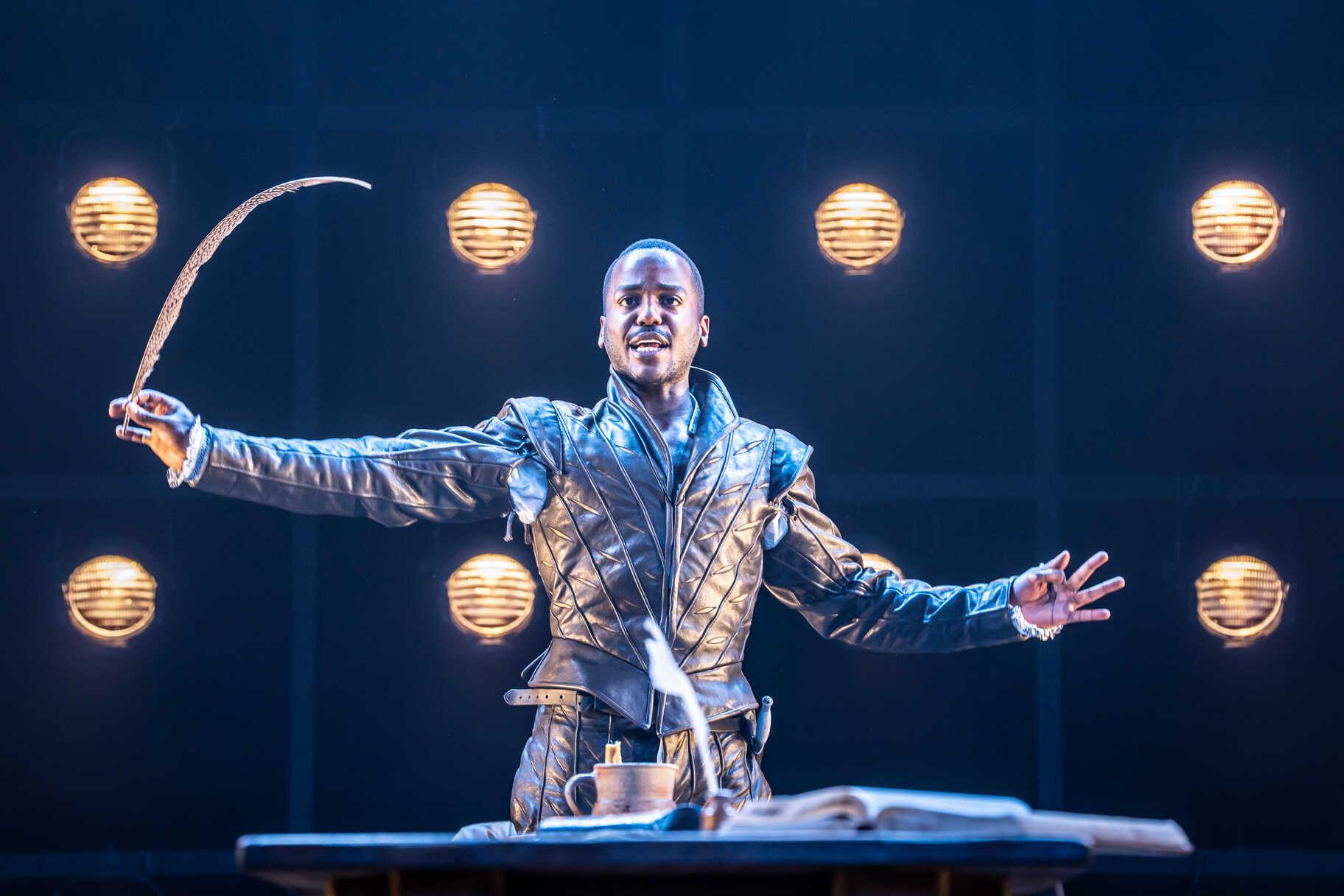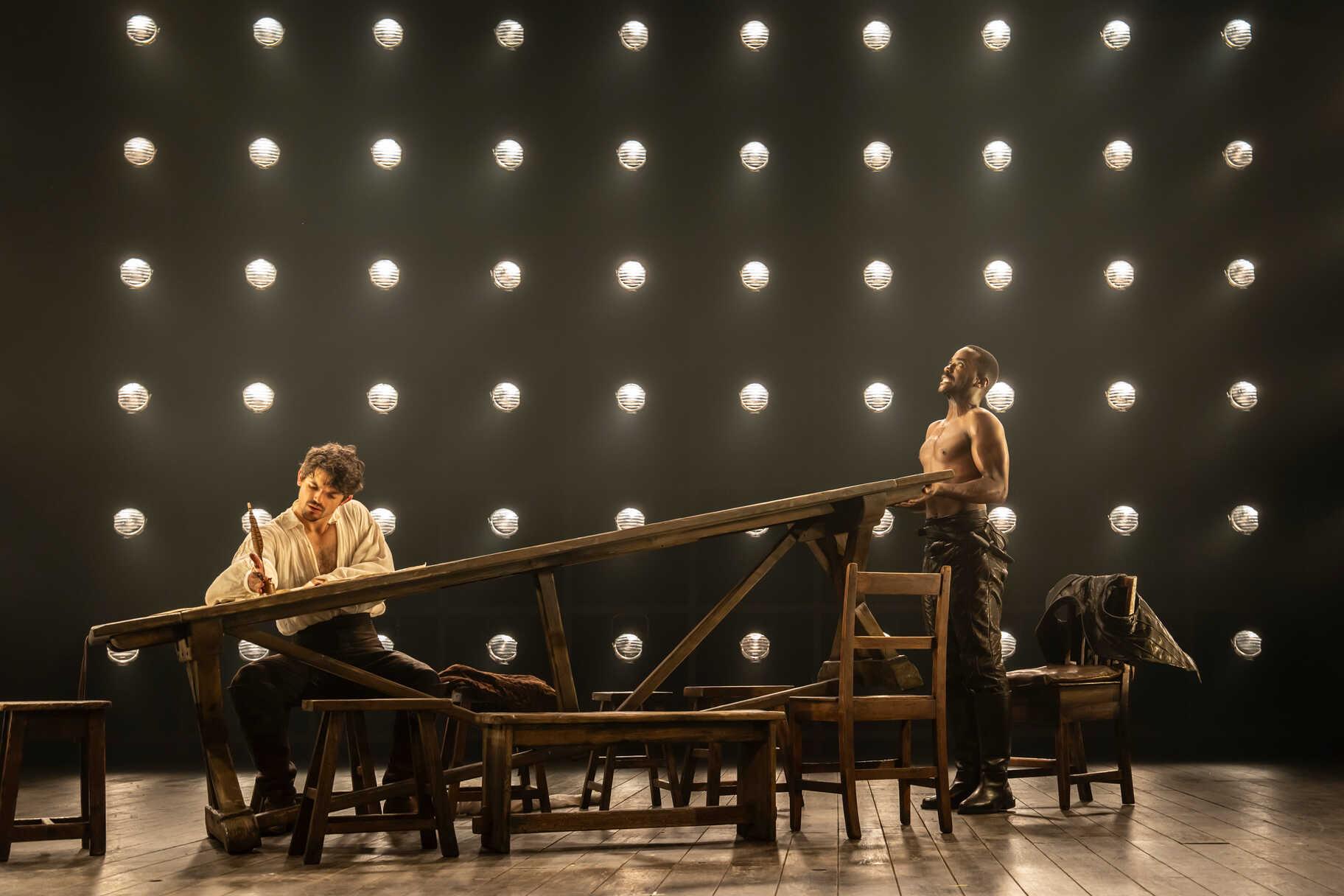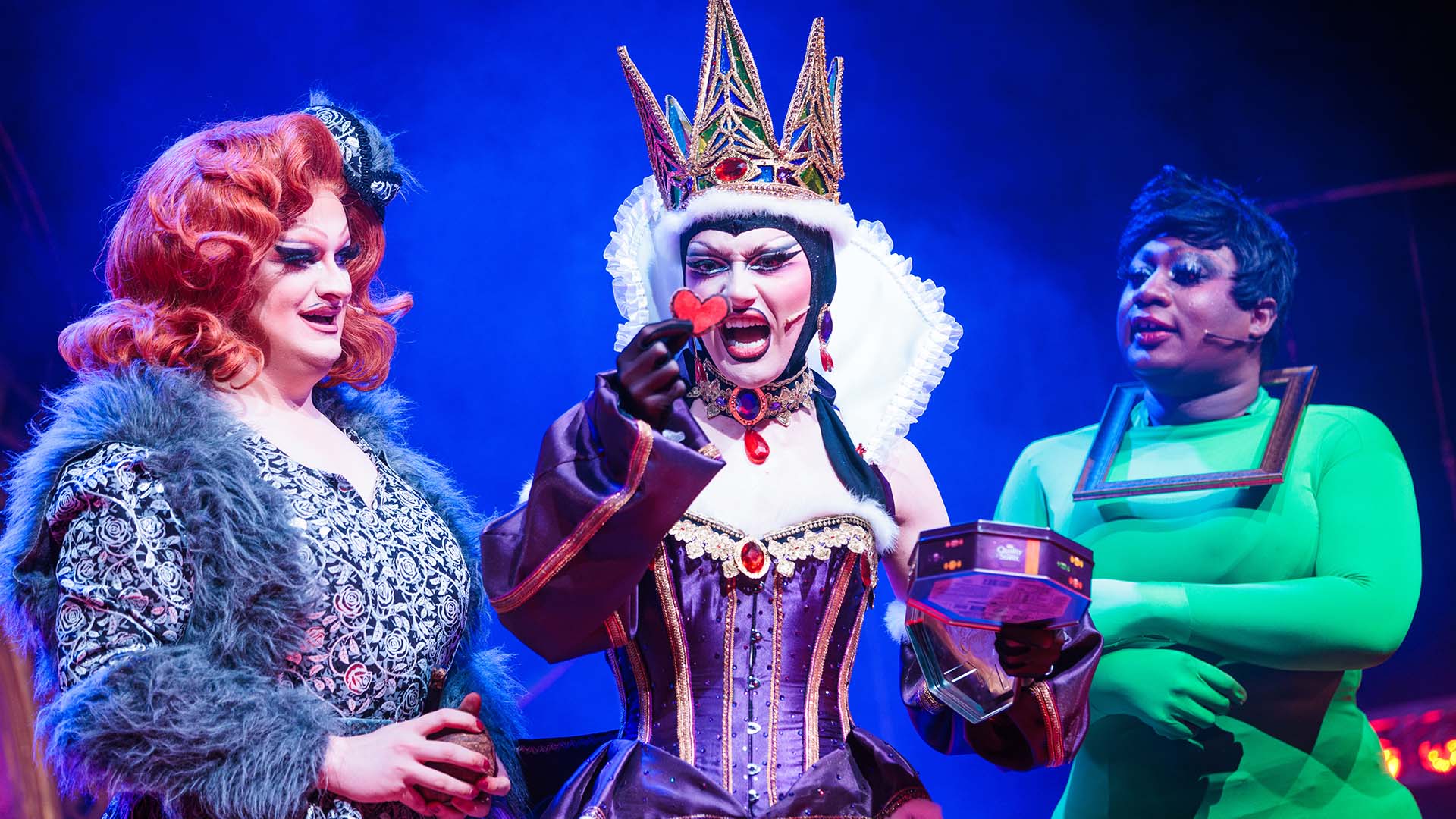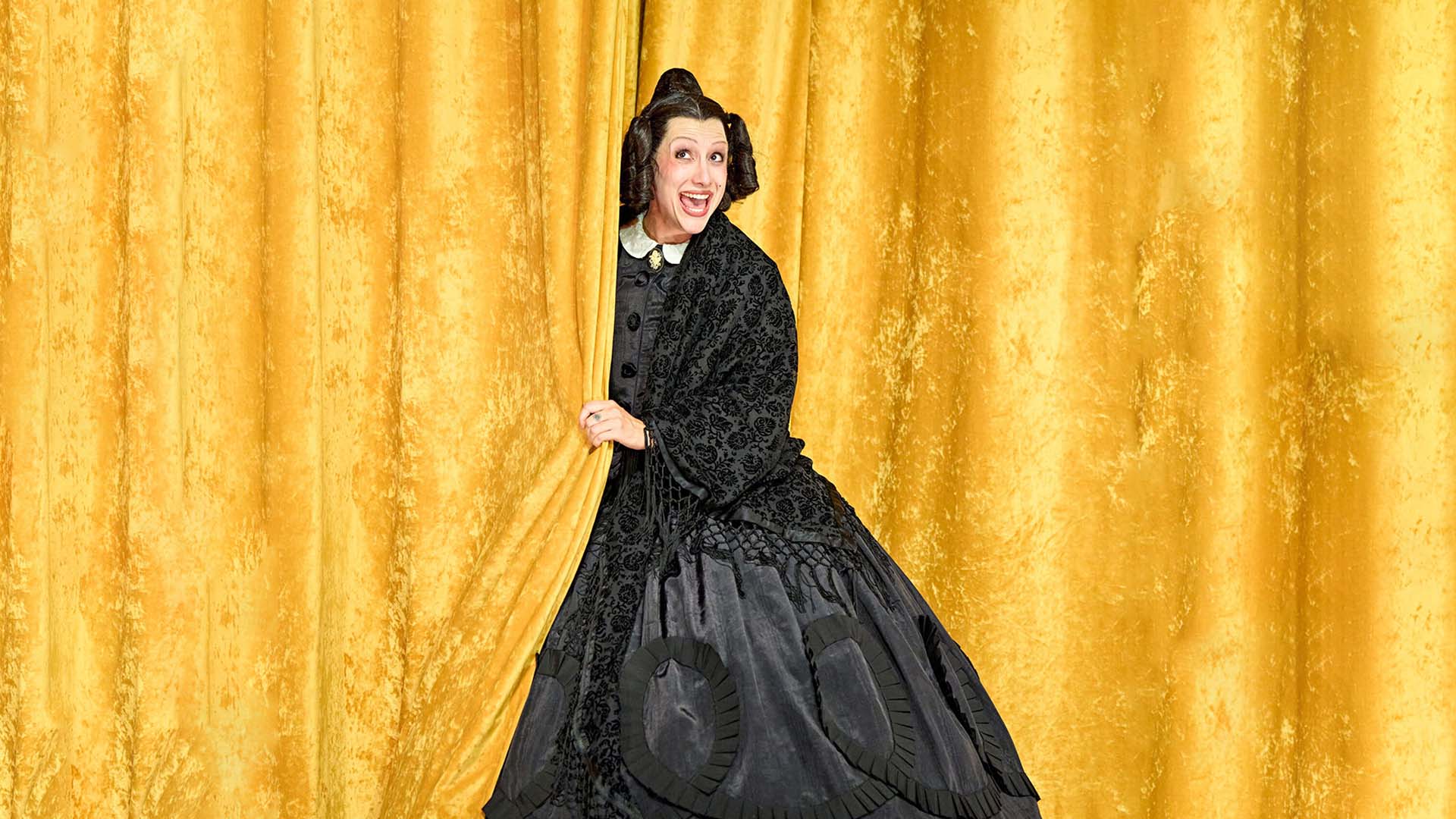Born With Teeth sinks into lust, rivalry and survival
Born With Teeth burns hot in London’s West End, a five-star duel of genius and desire between Shakespeare and Marlowe.
Born With Teeth sinks into lust, rivalry and survival

The play begins with a startling image. Two men hang upside down on ropes, captured and interrogated, bodies tense and exposed. It feels like punishment, or warning, as if we are entering a world where words can betray you and desire can kill you. This prologue sets the tone at once, pulling us into a world where nothing is safe.

Then the stage empties into simplicity. A wooden table, two chairs, and three tall structures lined with 216 lamps. They burn white and hot, flooding the actors in light that feels like interrogation, like exposure, and like a fire that never goes out. The actors sweat and strain under this brightness. There is no curtain of shadows, nowhere to hide, only the heat and the words.
The words are the fight. For ninety minutes without interval, Christopher Marlowe and William Shakespeare are locked in a game of wit, lust, and survival. Ncuti Gatwa plays Marlowe as a man of fire. He prowls the stage in leather, restless, grinning, teasing, his body alive with appetite. He drips with sweat, every move alive with tension, as if ready to leap at Shakespeare at any moment. Edward Bluemel’s Shakespeare begins soft and meek, a provincial poet who lowers his eyes and stumbles over lines. Slowly, almost without us noticing, he stiffens, gains strength, and his voice sharpens into the Shakespeare we know. The contrast is beautiful. One burns fast and dangerous, the other grows steady and unshakable.

The tension between them is undeniable. Marlowe taunts him, “I think you were born with teeth.” Shakespeare admits, “I need to write this bloody play and get paid so I can eat.” Their lines are sharp but also full of hunger. They circle each other like rivals, like lovers, pulled together and torn apart in the same breath. Marlowe speaks words that glow with desperation: “For where thou art, there is the world itself. And where thou art not, desolation.” In that moment the play opens into intimacy, and the danger of it.
The story sits in 1591, in a world of paranoia, enemies abroad, and unrest at home. To speak out of turn could cost your head. Catholic families are watched, spies move in every tavern, and survival means silence. Marlowe is a known provocateur and also a spy. He tries to pull Shakespeare into his dangerous games, tempting him to betray himself. Their writing of Henry VI Part III becomes more than work. It is both shield and weapon. The famous line that gives the play its title, “born with teeth,” echoes like a prophecy of men who will bite into each other to live on.
Politics and desire mix until they are inseparable. Every flirtation feels like a test. Every touch is risky. Even desire is described as “like petting leopards until the teeth flash out.” The intimacy between the men is always edged with threat, and that is where the play’s queer heart beats. Love here is never safe.


The final moments are haunting. Marlowe warns, “You devoured me. Just as you feared, I devoured you. I will go on in you. I will hunt you forever.” Shakespeare later admits, almost broken, that he will forever write Kit back into life, giving him breath in his plays again and again. The suggestion is clear. Marlowe may die young but he will live on inside Shakespeare’s work. Their rivalry, their attraction, their danger, all buried inside words that reach centuries forward.
Daniel Evans directs with clear focus. The staging is stripped bare, the light unrelenting, the atmosphere hot and claustrophobic. The design is simple but merciless. Every glance, every line, every touch between the two men is magnified. Gatwa throws himself fully into the role, alive with energy, never still, his body carrying both lust and danger. Bluemel balances him with patience, letting Shakespeare grow in strength until he becomes formidable. The two are in perfect contrast, and together they create a world that feels erotic, political, and alive.
The play has a sharpness that keeps it alive from start to finish. It can be clever, even funny at times, but underneath is a ferocity that leaves the room charged and hot. What strikes most is the chemistry between the two men. They circle each other with such force that it becomes impossible to look away.

Born With Teeth is not a history play. It is a sparring match of genius and desire. It shows us Shakespeare before the fame, Marlowe before the death, both of them caught in a dangerous game of words and lust under a watchful crown. The lamps blaze, the words cut, the bodies strain, and what remains is a vision of two men who might have devoured each other and lived forever in words.

Born With Teeth is theatre at its most thrilling. A stripped stage, two incandescent actors, and a script that crackles with lust and danger. Rarely does a two-hander feel this alive. The chemistry between Ncuti Gatwa and Edward Bluemel is electric, the staging unforgettable, the words both brutal and tender. For its courage, intensity, and sheer theatrical fire, this deserves nothing less than five stars.
Written by Lex Melony

Get weekly updates
.png)
Join Our Newsletter
Get a weekly selection of curated articles from our editorial team.





.svg)











